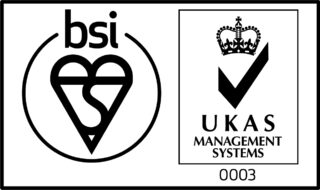Government response on potential business models for CCUS

We wanted to take this opportunity to inform you Carbon Capture, Usage and Storage (CCUS): A Government Response on potential business models for carbon capture, usage and storage has today been published.
This is an important milestone and underlines the Government’s ambition to delivering CCUS and low carbon hydrogen in the 2020s, supported by new commercial frameworks which we will put in place over the next two years. The response document sets out the progress we have made on business models to incentivise CCUS and low carbon hydrogen, as well as an update on the CCS Infrastructure Fund, announced at the Spring Budget. The response sets out the Government’s intention to progress an Industrial CCUS Contract for Difference and to provide a further detailed update on the model’s design by the end of the year. On low carbon hydrogen, it includes a commitment to continue to progress the development of a low carbon hydrogen business model with the intention to consult on a preferred business model. Alongside this we have also published: Carbon Capture, Usage and Storage: A Government Response on the re-use of oil and gas assets in CCUS projects, which identifies the opportunities and existing barriers to the re-use of existing infrastructure for CO2 Transport and Storage, as well as the assets with the greatest re-use potential for CCUS.
In July 2020, the UK Government announced plans to publish an Industrial Decarbonisation Strategy in Spring 2021. The Strategy will set out the Government’s vision for a prosperous, low carbon UK industrial sector in 2050. Working closely with Devolved Administration partners, the Strategy will set out how the low carbon transition can support industrial competitiveness and the Green Recovery across the UK, including identifying opportunities for new markets and sectors to develop.
The Strategy’s aim is to set out:
• how the UK can have a thriving industrial sector aligned to Net Zero without pushing emissions abroad;
• how and when Government will act to support decarbonisation, whilst sharing the costs fairly between industry, its customers and the taxpayer; and to
• start a conversation about the shape of industry in a Net Zero world.
Industry accounts for 16% of UK greenhouse gas emissions. This includes sectors like iron and steel, chemicals, cement, glass and paper, as well as industrial buildings. To meet Net Zero, industry emissions must fall by around 90% compared to 1990 levels. The Strategy will look at the role of different technologies and measures in achieving this, including using hydrogen, electrification, biomass and carbon capture, as well as improving energy efficiency and resource efficiency. It will look at industrial sites in clusters and beyond. The Strategy will also discuss the role of Government and industry in this transition, including how Government can coordinate the change, create the right incentives and address the risk of carbon leakage.
Ministers and officials will be talking to stakeholders in the development of the Strategy to ensure it captures a broad range of views and ideas.
For more information please contact: IEstakeholderengagement@beis.gov.uk




